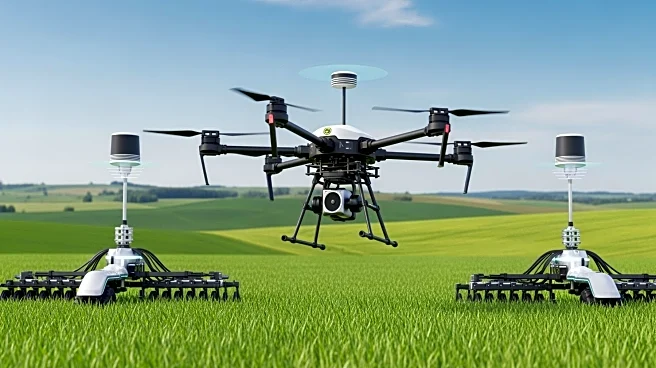What's Happening?
Kansas State University researcher Deepak Joshi is pioneering the use of remote sensing technology to enhance agricultural practices in Kansas. By integrating data from drones, satellites, and ground-based
sensors, Joshi aims to provide farmers with detailed insights into their fields, capturing spatial variability such as soil types, moisture, nutrient levels, and disease pressure. This technology allows for early detection of crop stress, nutrient deficiencies, and diseases, offering a real-time picture of crop health. Joshi's work focuses on making remote sensing practical and accessible for farmers of all operation sizes, with the goal of building confidence in these tools and ensuring farmers can interpret results easily.
Why It's Important?
The advancement of remote sensing technology in agriculture is crucial as it offers farmers a proactive approach to managing crop health and optimizing yields. By providing early warnings of potential issues, farmers can take corrective actions before problems escalate, potentially increasing productivity and reducing costs. This technology is particularly significant in the face of increasing challenges such as weather variability and rising input costs. By visualizing crop stress in time to act, remote sensing can contribute to more sustainable farming practices, ultimately benefiting the agricultural industry and food security.
What's Next?
Joshi and his team at Kansas State University are conducting on-farm trials to further evaluate the effectiveness of drone and satellite imagery in guiding nutrient application and irrigation decisions. The future of this research envisions automated systems where drones, satellites, and sensors work in tandem with artificial intelligence to provide near-real-time recommendations for farmers. As the technology continues to develop, it is expected to become an integral part of precision agriculture, offering farmers new tools to enhance their operations.











